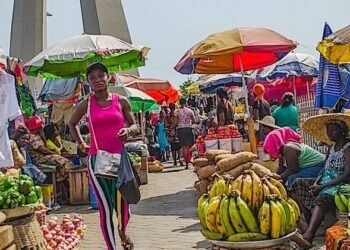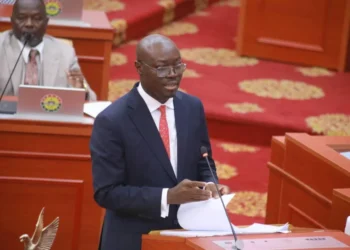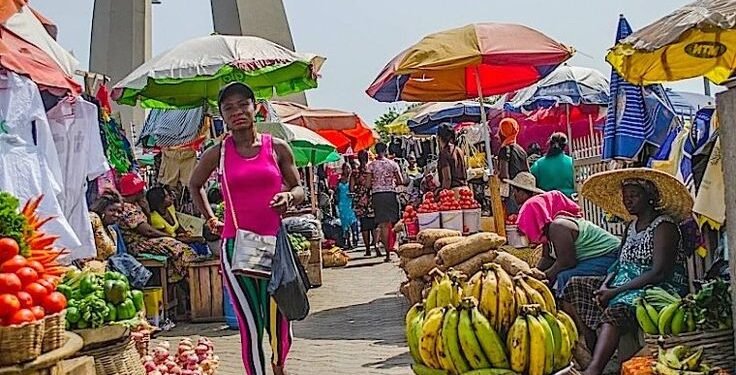The Monetary Policy Committee (MPC) of the Bank of Ghana (BoG) is gearing up for another decisive move in its fight against inflation.
Market watchers are forecasting that the central bank will slash the policy rate by 300 basis points to 22% at its September 2025 meeting. This will mark the second consecutive cut following a similar reduction in July, as the committee adopts a dovish stance amid a remarkable disinflationary trend.
According to IC Research, one of the country’s leading market research firms, the decline in inflation to 11.5% in August—its lowest level since October 2021—has opened significant room for easing. With the current nominal policy rate standing at 25%, the ex-post real policy rate sits at 13.5%. Without a cut in September, it could widen further to 15.4%, a level analysts warn may hinder growth momentum.
Inflation Falls Below End-2025 Target
Ghana’s inflation outlook has brightened considerably in recent months, falling below the authorities’ year-end target of 11.9%. The disinflationary path has been driven by improved food supply, lower transport fares, and favorable base effects. Analysts highlight that the sustained drop in inflation, coupled with a strong real policy rate buffer, provides the MPC with ample justification for deeper monetary easing.
“The disinflationary momentum is undeniable, and it is supporting monetary policy space,” IC Research observed. The firm noted that inflation is likely to fall further in September, potentially reaching a year-to-date rate of 9.6%. This would represent a 190-basis point decline compared to the same period in 2024, cementing the argument for a rate cut.
Transport Fares and Food Supply Drive Disinflation
Transport and food costs—two critical components of Ghana’s Consumer Price Index (CPI)—are expected to play a pivotal role in September’s inflation numbers. The 15% reduction in transport fares implemented in May 2025 continues to have a positive effect, with IC Research forecasting a fourth consecutive month of annual transport fare deflation.
Additionally, the resumption of industrial fishing activities, coupled with ongoing crop harvests, has contributed to easing food price pressures. Together, these factors are likely to keep headline inflation on a downward path, even as some month-on-month price pressures re-emerge. Analysts expect only a modest uptick in the overall CPI compared to the spike recorded in September 2024.
Implications for Businesses and Consumers
The anticipated cut in the policy rate to 22% is expected to have significant implications for businesses, consumers, and the broader economy. For businesses, particularly those in manufacturing and services, lower borrowing costs could ease pressure on operational expenses, encourage expansion, and improve profitability.
Consumers may also benefit through improved access to cheaper credit, supporting household consumption and boosting economic activity. With inflation declining, real incomes could stabilize, giving consumers more purchasing power in the months ahead.
However, some economists have urged caution, noting the risks posed by utility tariff adjustments and global commodity price shocks. IC Research acknowledged this risk but maintained that the domestic disinflationary momentum provides enough cushion for the BoG to act decisively.
The BoG’s task is not without challenges. While cutting rates supports growth, the central bank must remain vigilant to ensure that inflationary pressures do not resurface. The delicate balance between stimulating the economy and safeguarding price stability will continue to guide the MPC’s policy direction.
Analysts argue that Ghana’s current macroeconomic environment is favorable for easing, given that headline inflation is not only subsiding but also performing better than projected. “The BoG has every reason to stay dovish, provided inflation remains anchored within the target band,” IC Research concluded.
Looking ahead, the consensus among market analysts is that Ghana’s monetary policy will remain supportive of growth through the end of 2025, as long as inflation remains within or below the target range. Should the September meeting confirm a rate cut to 22%, businesses and investors can expect a more accommodative environment that may accelerate private sector activity.
Nonetheless, vigilance remains key. Global uncertainties—from energy prices to exchange rate volatility—pose ongoing risks to Ghana’s inflation trajectory. The BoG’s ability to adapt swiftly to changing dynamics will be critical in sustaining economic stability while fostering growth.
READ ALSO: Israel Sends Message With Assault On Qatar























